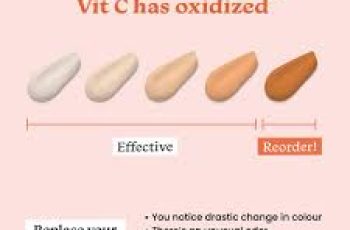
Aloe Vera for Skin: Benefits, Uses, and Side Effects
Aloe vera may look like a simple green plant, but inside its thick, spiky leaves is a soothing gel that has been used for centuries in skincare and medicine.
Known as the “plant of immortality” in ancient Egypt, aloe vera remains a favorite natural remedy today.
So what exactly makes aloe vera so effective for your skin? Let’s explore the science, benefits, best uses, and any risks involved.
What Is Aloe Vera?
Aloe vera is a succulent plant with thick, fleshy leaves that store a clear, jelly-like gel. This gel is packed with water, antioxidants, enzymes, vitamins, and minerals that nourish the skin.
There are over 400 species of aloe, but Aloe barbadensis miller is the most widely used in skincare. It’s the source of the aloe gel in most over-the-counter (OTC) products.
Why Is Aloe Vera Popular in Skincare?
Aloe vera has moisturizing, cooling, and anti-inflammatory properties. That’s why it’s used in products for sunburns, dry skin, acne, and more. It also helps promote a smoother, healthier-looking complexion.
Many people drink aloe vera water for its hydration and digestive benefits. This internal hydration can indirectly benefit the skin by improving overall moisture balance and plumpness.
Top Benefits of Aloe Vera for Skin
1. Soothes Sunburn
One of aloe vera’s best-known uses is sunburn relief. The gel cools overheated skin and helps reduce redness, pain, and swelling after UV exposure.
Aloe doesn’t prevent sunburn, though. Always apply a broad-spectrum SPF 30+ sunscreen daily.
2. Heals Minor Burns and Scrapes
For minor burns or cuts, aloe vera can reduce pain and speed healing. Apply the gel gently to clean skin 2–3 times a day until the area improves.
Its antibacterial and anti-inflammatory actions help protect damaged skin from infection and reduce scarring.
3. Hydrates Dry Skin
Aloe vera contains over 95% water, which makes it intensely hydrating. It acts as a humectant, drawing moisture into the skin.
To boost moisture retention, apply aloe vera to damp skin and seal it with a moisturizer.
4. Calms Eczema and Psoriasis
For people with eczema or psoriasis, aloe vera can help reduce dryness, itchiness, and flaking. Use it twice daily on affected areas.
Its anti-inflammatory and moisturizing effects offer gentle relief without harsh chemicals.
5. Helps with Inflammatory Acne
Aloe vera can reduce the swelling and redness of active acne, especially pustules or inflamed pimples. Apply directly with a clean cotton swab up to 3 times daily.
It may not treat the root cause of acne but can soothe symptoms and help spots heal faster.
6. Fights Signs of Aging
Because aloe vera boosts moisture and stimulates collagen production, it may reduce the appearance of fine lines and wrinkles over time.
When used regularly, aloe vera can help skin appear plumper and more youthful.
7. Reduces Hyperpigmentation
Aloe vera contains aloesin, a compound that may help fade dark spots and even skin tone by inhibiting melanin production.
It works best when used daily and combined with sunscreen for protection from further pigmentation.
What’s in Aloe Vera That Benefits the Skin?
Aloe vera gel is rich in nutrients that support skin health:
Vitamins A, C, and E – powerful antioxidants
Vitamin B12 – supports healthy skin cell function
Folic acid and choline – aid in skin regeneration
Enzymes – exfoliate and renew skin gently
Amino acids – help skin repair and stay smooth
Minerals like zinc, calcium, and magnesium
These elements work together to moisturize, calm, and protect the skin from damage.
Can You Use Aloe Vera on Your Face Daily?
Yes, many people safely use aloe vera on their face every day. If your skin responds well, daily use can improve hydration and calm irritation.
You can apply aloe vera gel:
In the morning, under your moisturizer
At night, as a lightweight soothing mask
After sun exposure or a workout
As a spot treatment on pimples or dry patches
Always use clean hands or a sterile applicator to avoid contamination.
Should I Use Fresh Aloe or Store-Bought Gel?
Fresh aloe from a plant contains the purest gel. Simply cut a leaf, scoop out the gel, and apply it to your skin. Store any extra in the fridge for up to one week.
However, most people use over-the-counter aloe vera gels for convenience. These are usually mixed with preservatives and sometimes include other skin-friendly ingredients like:
Calendula, Chamomile, Hyaluronic acid, Glycerin
Look for a gel with a high percentage of aloe vera and minimal added ingredients or fragrances.
How to Apply Aloe Vera Gel to Your Face
Cleanse your face with a gentle cleanser.
Pat your skin dry.
Apply a small amount of aloe vera gel evenly.
Let it absorb or rinse off after 10–20 minutes if using as a mask.
Follow with a moisturizer if needed.
Do this once or twice daily, depending on your skin’s needs.
Are There Any Side Effects of Aloe Vera?
While aloe vera is considered safe for most skin types, some people may experience side effects such as:
Itching, Redness,Burning, Rashes
These reactions are usually mild and may happen with fresh or store-bought gel.
Avoid Aloe Vera If:
You have known aloe allergies.
You’re treating deep cuts or surgical wounds.
You’re pregnant or breastfeeding without medical guidance.
Some studies suggest aloe might slow healing in deep wounds, so avoid applying it to open or severe skin injuries.
How to Do a Patch Test for Aloe Vera
Before using aloe vera on your entire face or body, always patch test:
Apply a small amount of aloe vera gel to the inside of your forearm.
Wait 24 hours.
If no redness, itching, or swelling appears, it’s likely safe to use.
Aloe Vera in Skincare Products
Aloe vera is commonly found in:
Moisturizers, After-sun lotions, Cleansers, Face masks, Toners, Spot treatments, Eye creams
Brands often include aloe vera to enhance hydration and reduce irritation from stronger active ingredients.
Tips for Getting the Most from Aloe Vera
Apply to slightly damp skin for better absorption.
Store aloe gel in the fridge for a refreshing, cooling effect.
Pair aloe with ceramides or hyaluronic acid for deeper hydration.
Don’t use aloe vera as a replacement for sunscreen—it doesn’t block UV rays.
The Bottom Line: Is Aloe Vera Worth Using for Skin?
Yes. Aloe vera is a time-tested, natural ingredient that offers numerous skin benefits. From sunburns to acne to dryness, it provides soothing relief and hydration.
If you’re looking for a gentle, multipurpose skincare ingredient, aloe vera is worth adding to your routine. Just remember to patch test first and use it as part of a well-rounded skincare regimen.
With regular use and a little attention to your skin’s response, aloe vera might just become your go-to secret for calm, happy skin.


